Barry Adam
Allan Bérbubé
Vern Bullough
George Chauncey
Madeline Davis
Frances Doughty
James Fraser
Bob Gallager
Joe Interrante
Karla Jay
Jonathan Ned Katz
Liz Kennedy
Gary Kinsman
Michael Lynch
Robert K. Martin
Alan V. Miller
Richard Partington
Gayle Rubin
Bruce Russell
Gregory A. Sprague
James D. Steakley
Beert Verstraete
Martha Vicinus
Lex Watson
Barry Adam
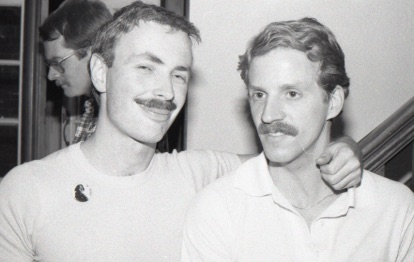
Barry Adam (born 1952 in Yorkton, Saskatchewan) is an author and Professor Emeritus of Sociology at the University of Windsor. His research focuses on the empowerment of the queer community and topics relating to HIV and AIDS. Adam’s projects range in focus from community-based, research-focused interventions for HIV prevention, to how individual coping strategies morph into a collective consciousness in gay and lesbian movements. In 1975, Adam was on the organizing committee of the University of Toronto’s Gay Academic Union. Now, Adam works for the Ontario HIV Treatment Network, and as a co-principal investigator with the group REACH (Research Evidence into Action for Community Health in HIV/AIDS).
Adam has authored multiple books, including The Global Emergence of Gay and Lesbian Politics (1999), Experiencing HIV (1996) and The Rise of a Gay and Lesbian Movement (1995). He has also published journal articles and book chapters, and has won awards for his research, including the Anselm Strauss Award for Qualitative Family Research in 2017 and the Career Award honouring “outstanding contributions to the Sociology of HIV/AIDS” in 2015. At the Wilde ‘82 Conference, he presented a paper titled “Where Gay People Come From.”
Click here for more information on Barry Adam.
Allan Bérubé
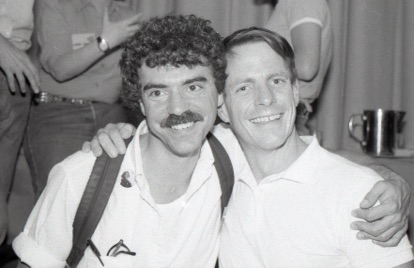
Allan Bérubé (1946-2007) was a historian whose research focused on gay men and lesbians in the military. He is best known for his book Coming Out Under Fire: The History of Gay Men and Women in World War II, which covers the history of lesbians and gay men in the military during WWII and is considered the definitive study on this topic. The book was cited in the 1993 Senate hearings on the US military’s banning of lesbians and gay men, and was used in the debate surrounding Bill Clinton’s “don’t ask, don’t tell” policy that allowed gay people to serve in the military. For this book, Bérubé was awarded the Lambda Literary Award for Best Nonfiction, and in 1995, the book was adapted into a documentary of the same name.
Bérubé was a founder of the San Francisco Lesbian and Gay History Project in 1979, which has now evolved into the GLBT Historical Society and the GLBT History Museum. In the 1990s, Bérubé became active in the queer activist groups Queer Nation, Out/Look, and Sex Panic! He is commemorated with The Allan Bérubé Research Stipend, which was created by the Allan Bérubé Memorial Trust to encourage researchers to use the GLBT Historical Society’s archives. Aside from his activism and writing, Bérubé was a lecturer at both the University of California and Stanford University. In 2007, Bérubé died at the age of sixty-one due to complications involving stomach ulcers. At the Wilde ‘82 conference, Bérubé presented “Marching to a Different Drummer: Lesbian and Gay GI’s in World War II” and “Blue Angels: Homosexuals in U.S. Military Psychiatric Wards.”
Click here for more information on Allan Bérubé.
Vern Bullough
Vern Bullough (1928-2006) was a sexologist and nursing researcher. Bullough earned his Bachelor of Arts in History from the University of Utah in 1951 and his Master of Arts in History from the University of Chicago in 1951. In 1954, he earned his Ph.D. in the history of medicine and science from the University of Chicago, and, in 1981, completed a Bachelor of Science in nursing from California State University-Long Beach. He briefly served in the US Army after World War II, and later became a professor of human sexualities at the University of California, The State University of New York, Buffalo, and the University of Southern California. At California State University, Bullough was the founding director of the Centre for Sex Research. He worked at The State University of New York (SUNY) as the Dean of the Faculty of Natural and Social Sciences, and was a founder of Cal State’s previously existing Center for Sex Research.
Bullough served as a member of multiple professional organizations. He was the president of the Society for the Scientific Study of Sexuality between 1981 and 1983, and was also involved in the American Historical Association, the American Nursing Association, and the Sexuality Education and Information Council of the United States. Bullough was also involved in politics, and in 1970, he ran for California State Assembly. He was a founding member of San Fernando Valley’s Fair Housing Council, and worked with the American Civil Liberties Union.
Bullough is also known for his books, many of which were co-written with his wife, Bonnie Uckerman Bullough, who was a nurse and sexologist. These include The Subordinate Sex: A History of Attitudes Toward Women (1973) and Sexual Attitudes: Myths and Realities (1995). For his written work, Bullough has received many academic awards, including the Kinsey Award in 1995. Aside from awards for his written work, Bullough has received a Distinguished Humanist Service Award from the International Humanist and Ethical Union in 1992, a group he later worked for as co-president and vice president between 1994 and 1998. His scholarly publications and teachings helped define the field of sexuality due to his fresh ideas, willingness to gather scholarly information, and organization of international conferences in the field. At the Wilde ‘82 Conference, Bullough presented the paper “Salt Lake City Lesbians in the 1920s.”
For more information on Vern Bullough, click here.
George Chauncey
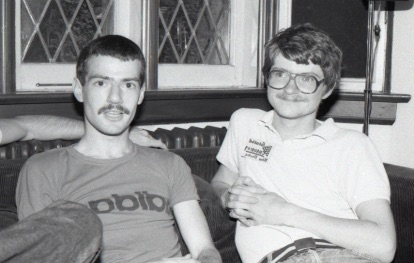
George Chauncey (born 1954) is a distinguished author and DeWitt Clinton Professor of American History, with a focus on LGBTQ+ history, at Columbia University. He is also the director of Columbia’s Research Institute on the Global History of Sexualities. Chauncey’s published books include Gay New York: Gender, Urban Culture, and the Making of the Gay Male World, 1890-1940 (1994) and Why Marriage? The History Shaping Today’s Debate over Gay Equality (2004). He is part of the New-York Historical Society’s Board of Trustees, and he has worked as a historical consultant for multiple history projects, such as teacher training programs for libraries including the New York Public Library and the Library of Congress. Chauncey’s work has been published in The New Yorker, The Atlantic, and The New York Times.
Chauncey has received many prestigious academic nominations and awards, including The Library of Congress’ John W. Kluge Prize for Achievement in the Study of Humanity in 2022. He was the first scholar in LGBTQ+ studies to win the award, and he received a prize of $500,000. Chauncey started teaching at Columbia University in 2017, but prior to this, he taught at both the University of Chicago and Yale University. He served as the chair of both Yale’s History department and Yale’s Committee for LGBT Studies, and in 2012 was awarded Yale’s Sidonie Miskimin Clauss Prize for Teaching Excellence in the Humanities. Aside from his work in academia, Chauncey is known for his participation in over thirty gay rights cases between the years of 1993-2015. He also participated in the marriage equality case between 2013-2015 that was responsible for lifting the ban on LGBTQ marriage.
For more information on George Chauncey, click here.
Madeline Davis
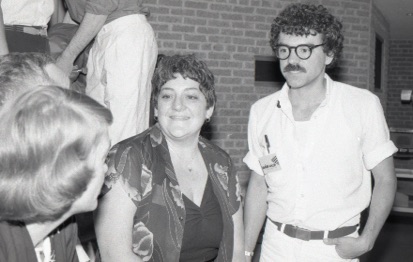
Madeline Davis (1940-2021) was an openly bisexual activist, historian, and librarian. She was founder and president of Western New York’s first gay rights organization, The Mattachine Society of the Niagara Frontier, which lobbied against the Buffalo police force’s relentless raids on gay bars and outing of queer individuals. The first pride march Davis participated in was the 1971 March on Albany, a two-day march that was significant to the Gay Rights Movement in its bringing together of multiple queer activist groups. Davis is credited with recording the first Gay Liberation record, a song called “Stonewall Nation,” in 1973, and was one of the first editors of a periodical queer-focused newspaper called The Fifth Freedom. Davis was the first openly lesbian delegate to be elected to the Democratic National Convention in 1972, and is also known for the five weddings she and her partner Wendy Smiley had in different locations after the legalization of gay marriage.
Aside from her activism in the queer community, Davis is known for her scholarly pursuits. In 1972, Davis taught “Lesbianism 101” at the University of Buffalo, which is considered the first university course on lesbian history in the United States. In 2001, she created an archive in her own basement called “The Dr. Madeline Davis LGBTQ Archive of Western New York” in order to collect and share materials that demonstrated the history of queer communities in Western New York and Southern Ontario. Davis passed away in 2021, shortly after being named the Buffalo and Erie County Public Library System’s chief conservator and head of preservation. At the Wilde ‘82 Conference, Davis presented a paper titled “Bars and the Buffalo Lesbian Community 1930-1960” alongside Liz Kennedy, which built off an ethnography the two published in 1994 titled Boots of Leather, Slippers of Gold: The History of a Lesbian Community.
For more information about Madeline Davis, click here.
Frances Doughty
Frances Doughty was a lesbian historian, activist, and writer who published articles throughout the 1970s and 1980s in lesbian journals. Her most widely recognized article,“Lesbian Biography, Biography of Lesbians,” was published in 1979 in A Journal of Women Studies. Doughty was also a board member for the National Gay and Lesbian Task Force (NGLTF), an activist group that formed in 1973 in New York. The NGLTF advocated for queer rights, and their activism was in part responsible for the removal of homosexuality from the American Psychiatric Association’s list of mental disorders and the lifting of the federal Civil Service Commission’s ban on the employment of queer individuals. Doughty also participated in an interview in 1973 called “In Search of Sappho,” in which she analyzed historical lesbian icon Sappho’s poetry and her influence on other ancient Greek and Roman works. At the Wilde ‘82 Conference, she presented a paper titled “A Family of Friends: Portraits of a Lesbian Friendship Group 1921-1973.”
James Fraser
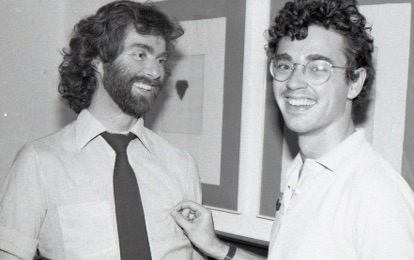
James Fraser (1946-1985) was a professional archivist and activist known for his work with The ArQuives. Fraser completed a Bachelor of Arts in Canadian History at St. Thomas University in 1969, worked for the Provincial Archives of New Brunswick from 1972-1974, and worked as a professional archivist at the City of Toronto Archives in 1976. He was an important contributor to the Lesbian and Gay History Project, which began late in 1980. Fraser’s most notable act of queer activism was on March 7, 1979, in which he demonstrated outside of Queen’s Park in Toronto against anti-gay demonstrations. Fraser was the only counter-demonstrator at this event.
He began volunteering for the Canadian Lesbian and Gay Archives (now called the ArQuives) in 1976, becoming the first professional archivist to volunteer for the group. He was one of the archive’s first six directors, and in honour of his contributions, the ArQuives named The James Fraser Reference Library after him. The library contains both fiction and non-fiction publications and emphasises Canadian LGTBQ+ related content. James Fraser died in 1985 due to complications related to HIV. He was one of the a main organizers of the Wilde ‘82 conference.
Bob Gallagher
Bob Gallagher is a gay rights activist, political strategist and consultant, and professor located in Toronto. After earning his graduate degree in political economy from the University of Toronto, he went on to teach social theory and public policy at Trent University. In the 1980s, Gallagher was known for his gay rights activism during meetings with police boards. In June 1981, during a meeting with the Metropolitan Toronto Board of Police Commissioners, Gallagher represented the Right to Privacy Committee alongside John Bodis to fight against the police’s persecution of the queer community, and in December 1981, Gallagher represented the Toronto Gay Community Council at a meeting with the police chief. Gallagher was also a director of Buddies In Bad Times Theatre, the longest-running queer theatre company in the world.
Gallagher co-founded multiple queer-focused organizations, including the Campaign for Equal Families, Canadians for Equal Marriage, and the Gay Lesbian Bi Youth Line. Aside from his activism, he worked in policy formation of municipal and federal levels and as a political strategist and consultant. During three elections, he worked as Chief of Staff for the Federal New Democratic Party and Jack Layton, and also worked as Olivia Chow’s Executive Assistant at Toronto City Council. Gallagher now works for the United Steelworkers as the Head of Communications and Political Action.
For more information about Bob Gallagher, click here.
Bert Hansen
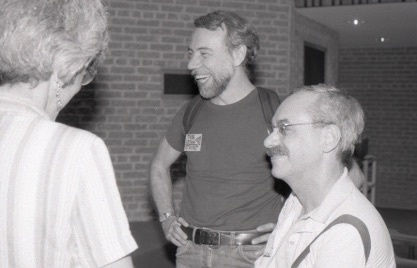
Bert Hansen is a Professor Emeritus of History at Baruch College of CUNY. He completed his bachelor’s degree in chemistry in 1965 at Columbia College, and his Ph.D. in history and history of science in 1974 at Princeton University. Hansen was a gay activist in the 1970s, at which time he was out as a gay man and was a member of the Broome County Gay Alliance. This organization lobbied to reform laws that negatively impacted the queer community and participated in events such as a blood drive for the Red Cross. In 1978, Hansen was invited to speak at the Kiwanis club and to give a T.V. interview on his experiences as an activist. In 1980, Hansen coordinated the forming of a Lavender Left group made up of Toronto Gay socialists. He was also an activist in the AIDS movement of the 1980s.
Hansen is well known for his book titled Picturing Medical Progress from Pasteur to Polio: A History of Mass Media Images and Popular Attitudes in America, published in 2009, which studies the impact of contemporary images on the public perception of the social history of science and public health. His book was awarded by the Popular Culture Association, and the American Library Association named it the “2010 Best of the Best” book for public and secondary school libraries. He also created The Bert Hansen Collection of Medicine and Public Health in Popular Graphic Art, which compiles a visual record of more than 1200 items produced between 1850-2010 related to research, medical practice and public health in America. At the Wilde ‘82 Conference, Hansen presented multiple papers and spoke on the panel titled “The Making of the Modern Homosexual.”
For more information on Bert Hansen, click here.
Joe Interrante
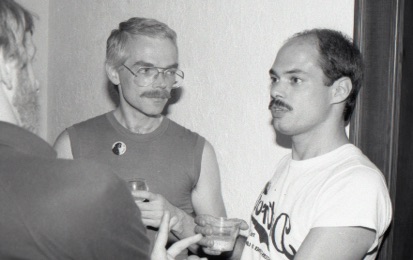
Joe Interrante was an AIDS advocate known for his work as director of the Nashville CARES organization. Interrante was a Harvard graduate and started his career as a college teacher. He got involved in LGBT politics in 1983 by working on the LGBT focused magazines Radical America and Gay Community News. He was also involved in the creation of The Boston Lesbian and Gay Oral History Project; Interrante suggested the group’s formation and wrote an article for their first pamphlet. He went on to become involved in the AIDS Action Committee of Boston after his partner Paul DiAngelo’s diagnosis and death, and in 1985, he tested positive for AIDS himself. Interrante worked as the executive director of The Health Issues Task Force in Cleveland for seven to eight years. In 1994, he was named the director of Nashville CARES, a nonprofit in Tennessee working to assist people living with AIDS/HIV, and he went on to lead the group for twenty-five years. While Interrante was director, Nashville CARES created My House, a wellness and community centre for African American men, as well as other gay men, living with HIV/AIDS. He retired from this position in 2019.
Interrante’s work has been recognized with numerous awards. In 2005, The Association of Nonprofit Executives awarded Interrante as Nonprofit CEO of the year, in 2006, the Tennessee Chapter of the National Association of Social Workers named him Public Citizen of the Year, and in 2014, he won The Human Rights Campign’s Equality Award. Interrante also served as a member on multiple boards, including the Public Policy Committee of AIDS United, and the Board of the Southern AIDS Coalition. He was also a co-chairman of the Tennessee AIDS Advocacy Network. During the Wilde ‘82 Conference, Interrante presented the papers “Our Boston Heritage: Lesbian and Gay Ancestors from 1800 to the Present” and “Masculinity and Sexuality” and was a speaker on the panel titled “The Making of the Modern Homosexual.”
To learn more about Joe Interrante, click here.
Karla Jay
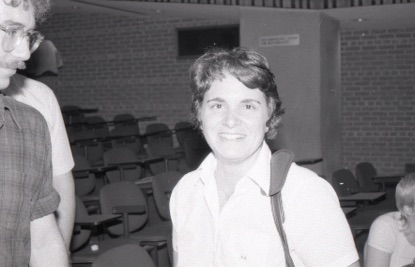
Karla Jay, born in 1947 in Brooklyn, NY, is a Professor Emerita of English, Queer Studies, and Women and Gender Studies at Pace University. Jay was a founding member of New York’s Gay Liberation Front in 1969, and was named the first female chair in 1970. In 1984, Jay completed her Ph.D. in comparative literature at New York University, during which time she became involved in queer liberation and the feminist movement. In the 1970s, Jay became involved in the lesbian radical liberation group Lavender Menace, which formed in response to the exclusion of lesbians in mainstream feminist movements. She later published a memoir titled Tales of the Lavender Menace: A Memoir of Liberation (1999) about her experiences with radical and lesbian feminism of the late sixties and early seventies in New York and California.
Jay has written or co-edited ten books, and has won numerous awards for her work, including a Lambda Literary Award in 1996, and the Bill Whitehead Lifetime Achievement Award in 2006. She was also placed on Out Magazine‘s list of the 100 most influential lesbians and gay men for her activism and published works. At the Wilde ‘82 Conference, Jay presented a paper titled “Natalie Barney, Renée Vivien and the re-creation of the Golden Age of Sappho.” She also presented the paper “Life in the Underworld: Lesbian Bar as a Metaphor” on the event’s main panel, titled “The Making of the Modern Homosexual.”
For more information on Karla Jay, click here. To see her archival papers, click here.
Jonathan Ned Katz
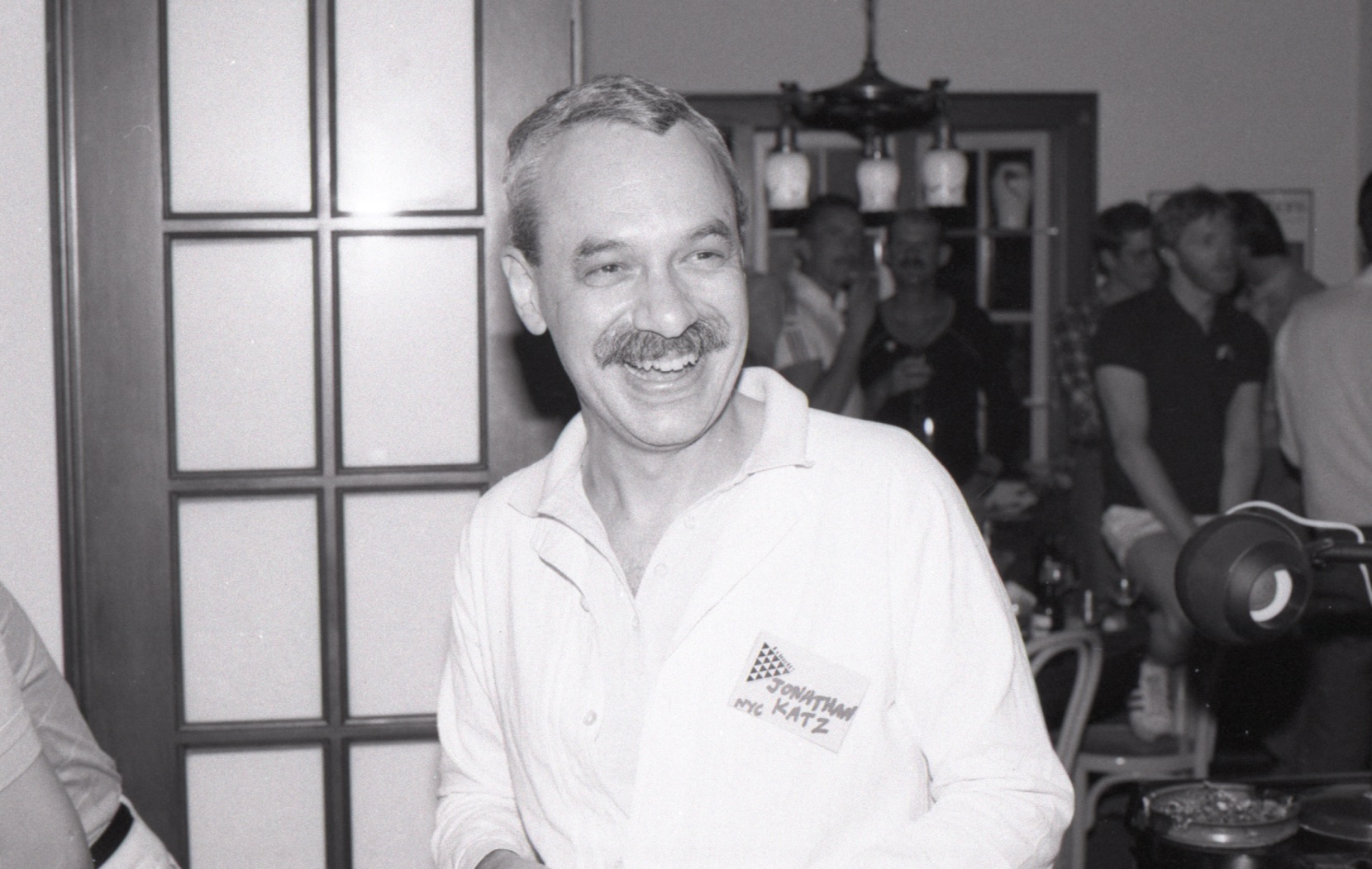
Jonathan Ned Katz, born in 1938 in Manhattan, New York, is a writer, LGBTQ+ historian, and activist. His research is focused on the social construction of gender and sexual identities. During the 1970’s, Katz founded the Gay Academic Union Umbrella and the Center for Lesbian and Gay Studies at City University in New York. In 1975, he became the editor of Arno Press, a New York Times publishing press. Katz also founded the website OutHistory.org in 2008, which compiles American LGBTQ+ historical research for free public use. Katz taught a class on sexual history at Yale University, and curated a historical exhibit called “The Pink and the Blue: Lesbian and Gay Life at Yale and in Connecticut, 1642-2004.” He is also a visual artist and painter, and his art can be seen on his website jnkArt.com.
Katz has published five books on LGBTQ+ U.S. history that have helped create and define the field of queer studies. For example, his novel Gay American History: Lesbians and Gay Men in the U.S. (1976) used archival research to outline the history of the queer community’s oppression and resistance. His most recent book, titled The Daring Life and Dangerous Times of Eve Adams (2021), was featured in The New York Times and New Yorker. He has also published multiple essays, conducted formal interviews, and edited theatre pieces such as Coming Out! A Documentary about Gay Life and Liberation (1975). At the Wilde ‘82 conference, Katz presented a paper titled “The Invention of the Homosexual.”
For more information about Jonathan Ned Katz, click here. To view his archival papers, click here.
Liz Kennedy
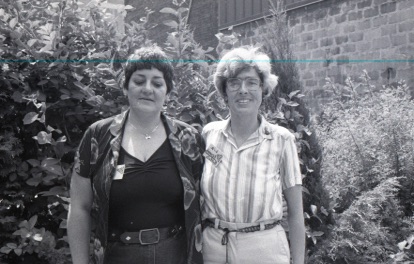
Elizabeth Lapovsky Kennedy, born in 1939, is a Professor Emeritus at the University of Arizona. Her research interests include women’s studies, lesbian and gay history, feminist research methods, and oral history. She started her studies in social anthropology at Cambridge University and conducted her doctoral research on the Wounaan in the Colombian rainforest. Through this community, she examined how egalitarianism presents in the absence of hierarchies of power. She received her Ph.D. in 1972 from Cambridge for her work on the Waunan of the Chocó province in Colombia. Kennedy went on to join the American Studies faculty at SUNY Buffalo in 1969. She taught there for twenty-eight years and was a founder of one of the first women’s studies programs in the USA.
Kennedy has received many awards for her work, including the “Fabulous Faculty Staff Award” from the University of Arizona in 2011. In 1993, Kennedy co-authored a book with Madeline Davis entitled Boots of Leather, Slippers of Gold: The History of A Lesbian Community, which received numerous awards such as a Lambda Literary Award in 1993. Aside from this book, Kennedy published a collection of essays in 2000 originating from a conference that took place at the University of Arizona. She also co-edited a collection titled Women’s Studies for the Future: Foundations, Interrogations, Politics in 2005. At the Wilde ‘82 Conference, Kennedy presented a paper entitled “Bars and the Buffalo Lesbian Community 1930-1960” in conjunction with Madeline Davis.
For more information about Liz Kennedy, click here. To view her archival papers, click here.
Gary Kinsman
Gary Kinsman (born in 1955 in Toronto) is a writer, sociologist, academic, and activist focused on LGBTQ and feminist topics. He worked as a professor of sociology at Laurentian University, located in Sudbury, Ontario and helped organize one of Sudbury’s first pride events in 1997. In the 1970s and 1980s, Kinsman was a member of many LGBTQ organizations, including the Association for Social Knowledge (ASK) and the Gay Alliance Toward Equality (GATE). He is a founder of the group Gays and Lesbians Against the Right Everywhere (GLARE), as well as the Gay Pride Day Committee of Toronto. He also served as an executive on the board of the Gay Alliance Toward Equality group, and was involved in multiple AIDS focused groups such as AIDS ACTION NOW! and the AIDS Activist History Project. Kinsman also fought for queer liberation with his involvement in the Toronto bathhouse raids resistance.
Beyond his teaching and activism, Kinsman is well-known for his writing. His book, Regulation of Desire: Homo and Hetero Sexualities (1987), is considered a key influential text of LGBTQ+ social history. Other books he worked on include The Canadian War on Queers, which he co-wrote with Patrizia Gentile, Whose National Security? Sociology for Changing the World, and Mine Mill Fights Back. Kinsman also worked as a journalist for The Body Politic and assisted in the publication of the magazine Rites. Kinsman is still actively posting articles on his website, radicalnoise.ca.
To learn more about Gary Kinsman, click here.
Michael Lynch

Michael Lynch (1944-1991) was an AIDS activist and leader of the gay liberation movement. From 1971 to 1990, Lynch worked for St. Michael’s College in the University of Toronto as an English Professor, specifically teaching modern fiction, poetry, and writing, and in 1974, he taught the first gay studies course in Canada. He founded many of Toronto’s queer-focused organizations, such as the Toronto Centre for Lesbian and Gay Studies, Gay Fathers of Toronto, and the University of Toronto’s Gay Academic Union. Lynch was also a member of The Gay Alliance toward Equality Toronto and a member of The Body Politic’s editorial collective.
Lynch was well-known for his AIDS activism. He co-founded the AIDS committee of Toronto in 1984 and the Toronto AIDS Memorial in 1988, and also helped found the group AIDS Action Now!, which lobbied for improved access to HIV and AIDS treatment. Beyond this, Lynch released a book of poetry in 1989 called These Waves of Dying Friends, which spread awareness about AIDS and memorialized those who died from the disease. At the Wilde ‘82 conference, Lynch presented the paper “Between Friendship and Homosexuality: is Adhesivement the Missing Link?” and participated in the “Wildflowers” performance alongside Richard Partington.
For more information about Michael Lynch, click here
Robert K. Martin
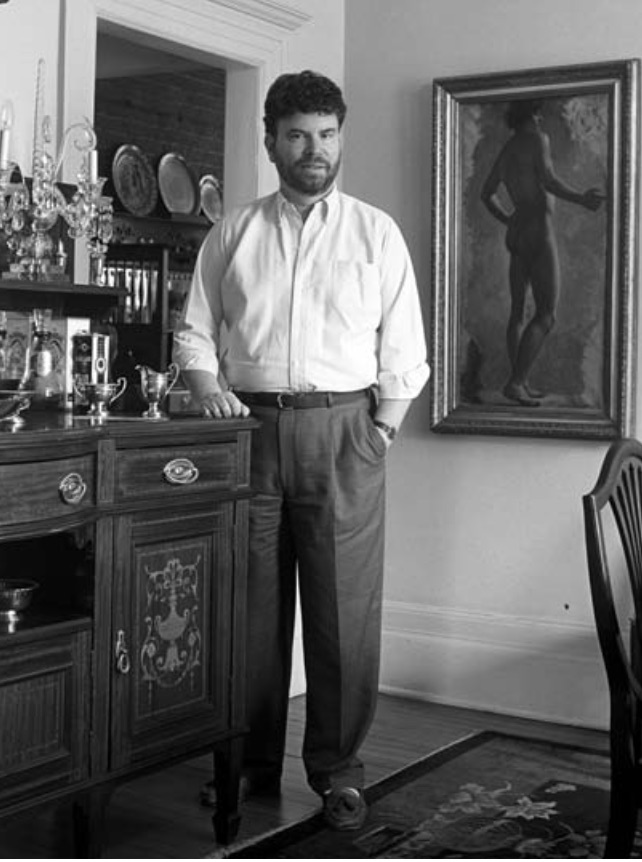
Robert Kessler Martin was born on 27 November 1941 in Bryn Mawr, Pennsylvania. After attending high school in Philadelphia from 1953 to 1959, Robert studied at Wesleyan University in Connecticut, obtaining his undergraduate degree in 1963. He then pursued graduate studies at Brown University, Rhode Island, taking a year off to teach American studies at the University of Kiel in Germany in 1965-1966. Besides being active in the antiwar movement and the black civil rights movement, Robert would later recall:
“My time in graduate school coincided with my coming out as a gay man. I also found that most people were extremely hostile to that. I think it put a very strong brake on me in pursuing questions like this, even in areas like the study of Whitman, where it seemed it would have been obvious, but, in fact, was not in the early 1960s obvious, that you would talk about that kind of thing” (Tucker 161).
In 1967, Robert became a Lecturer at Loyola College in Montréal, which in 1974 merged with Sir George Williams University to become Concordia University. He obtained his Ph.D. in 1978, after completing his dissertation, “The ‘Half-Hid Warp’: Whitman, Crane, and the Tradition of ‘Adhesiveness’ in American Poetry.” He had published a part of this in a highly influential 1975 Partisan Review essay, “Whitman’s Song of Myself: Homosexual Dream and Vision,” which had also been the topic of the first conference paper he delivered, at the 1973 American Studies Association convention.
Robert was the author of the groundbreaking studies The Homosexual Tradition in American Poetry (1979; expanded edition 1998) and Hero, Captain, and Stranger: Male Friendship, Social Critique, and Literary Form in the Sea Novels of Herman Melville (1986). As Christopher Nealon points out, Martin’s first book appeared in 1979: “This is only ten years after Stonewall; only six years after the American Psychiatric Association removed homosexuality from its Diagnostic and Statistical Manual of Mental Disorders. It is before Reagan; it is before AIDS. It is also before the language of crisis the epidemic taught us and before the politics of queerness it gave rise to” (617). Nealon goes on to emphasize how foundational The Homosexual Tradition in American Poetry was for later Gay and Lesbian Studies:
“Martin had important practical work to do in his book, some of which is so straightforward, so basic, that it takes your breath away to think he had to do it. He had to establish that in some sense, the poets he was writing about — Whitman and Crane, most importantly — could indeed be thought of as gay poets, whether or not the authors themselves would have chafed at the designation. He had to establish that sexual identity was a legitimate feature of literary analysis, even if shorn of dignifying psychoanalytic language. And he had to establish that it was damaging not to read these writers as gay, that we failed to learn something important about poetic work and poetic language if we didn’t. These critical tasks are so self-evidently useful to both literary and movement history that reading Martin’s book today, I feel a sheepish gratitude for the heavy lifting he did on our behalf, and a little envy about how free his prose is of the nervous drive to establish its credentials as movement writing” (618).
Robert himself was to recall: “When The Homosexual Tradition book was published, it had considerable impact. It sold very well for an academic book just because no one had ever done it before. … I got an enormous amount of mail and was invited to speak at lots of places” (Tucker 165)—including the Wilde ’82 conference. His paper for Wilde ’82 was “The Dramatist as Subversive,” on Oscar Wilde.
Robert also edited the collection The Continuing Presence of Walt Whitman: The Life after the Life (1992). His co-edited collections included E. M. Forster: Centenary Revaluations (1982, with Judith Scherer Herz); Queer Forster (1997, with George Piggford); American Gothic: New Interventions in a National Narrative (1998, with Eric Savoy); and Roman Holidays: American Writers and Artists in Nineteenth-Century Italy (2002; with Leland S. Person). In 1994-1995, Robert edited two special issues of English Studies in Canada focused on Lesbian and Gay Studies.
During his career, Robert published articles on a wide range of writers, including Roland Barthes, Edward Carpenter, Hart Crane, E. E. Cummings, E. M. Forster, Andre Gide, Nathaniel Hawthorne, A. E. Housman, Henry James, Thomas Mann, Herman Melville, Gertrude Stein, Bayard Taylor, Walt Whitman, and Oscar Wilde. His essay, “Knights-Errant and Gothic Seducers: The Representation of Male Friendship in Mid-Nineteenth Century America” was included in the formative collection Hidden from History: Reclaiming the Gay and Lesbian Past (1989), edited by Martin B. Duberman, Martha Vicinus, and George Chauncey (both Vicinus and Chauncey presented at Wilde ’82). He was an Advisory Board member for The European Gay Review and GLQ (Gay and Lesbian Quarterly), as well as a Contributing Editor for the periodicals Christopher Street and Gay Sunshine, and he contributed articles to In Touch, a gay adult magazine, and The Body Politic, the Toronto-based newspaper.
Robert became a Full Professor in the Department of English at Concordia in 1986. In 1992, he was appointed Chair of the Département d’études anglaises at l’Université de Montréal, where he attracted many graduate students and scholars engaged in queer studies.
For the last fourteen years of his life, Robert dealt with the increasing progression of Parkinson’s disease, and his illness and death (on 20 February 2012) robbed queer studies of a pioneer who still had much to contribute to the field. His last publication, “Newton Arvin: Literary Critic and Lewd Person” (2004), focused on the American literature scholar who, caught up in the anti-homosexual moral panic in the US, was charged with possession of gay ‘pornography’ in 1960. Leland S. Person recalled: “Robert was a student (a freshman, I think) at Wesleyan University…when Arvin was arrested just up the road at Smith, and I remember his telling me how terrifyingly that event registered on him. But surely Arvin’s example as a homosexual scholar struggling but still determined to discover the homoerotic underpinnings of American men’s writing inspired him” (7). At the 2006 Modern Language Association convention in Philadelphia, a session was held titled “Queer Lineations: Robert K. Martin and Gay Literary Studies.” As Jay Grossman observes: “The reason for the session can be put rather simply: where would the field of gay and lesbian studies be, we wondered, if it weren’t for the scholarly inventiveness and political commitment—not to say the simple courage—of Robert K. Martin?” (Grossman 599).
Jason Boyd
For more information on Robert K. Martin, click here.
Alan V. Miller
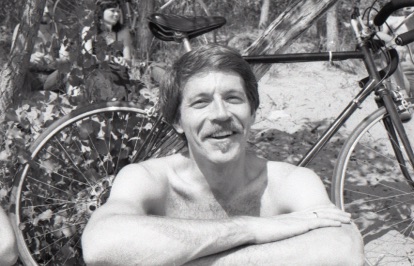
Alan V. Miller is a retired librarian, archivist, and event organizer for the queer liberation movement. He was educated by Cornwall Collegiate and Vocational school, then earned his Bachelor’s degree in biology at Queen’s University, and his Master’s in geology at the University of Toronto. Miller was one of the first six directors of the Canadian Lesbian and Gay Archives (CLGA), and volunteered as an archivist for the organization for over thirty years. For his volunteer work at the CLGA, the LGBT Giving Network awarded him with an Outstanding Community Volunteer Award.
Aside from his volunteer archivist work, Miller worked at the Ryerson University Library (now Toronto Metropolitan University Library) as a library technician and electronic source cataloguer until 2013. He also compiled many bibliographic projects that documented LGBTQ+ history in Canada for the Ontario Ministry of Labour in 1978, and worked with the Lesbian and Gay History Project. Miller was a main organizer for the Wilde ‘82 conference, and also organized two other gay history conferences: “Whitman in Ontario” in 1980 and “Sex and the State” in 1985.
In the 1980s, Miller published multiple works on AIDS, many of which were the first of their kind: Gays and Acquired Immune Deficiency Syndrome (1st ed. 1982; 2nd ed. 1983) and Medical, Social and Political Aspects of the Acquired Immune Deficiency Syndrome Crisis: A Bibliography (with Donald McLeod) in 1985. A few years later, Miller published Directory of the International Association of Lesbian and Gay Archives and Libraries (1987) and Our Own Voices: A Directory of Lesbian and Gay Periodicals, 1890-1990 (1991).
For more information on Alan V. Miller, click here.
Richard Partington
Richard Partington was an actor who participated in a performance called “Wildflowers” alongside Michael Lynch. This was a dramatization of a meeting that occurred in 1882 between Oscar Wilde and Walt Whitman.
Gayle Rubin
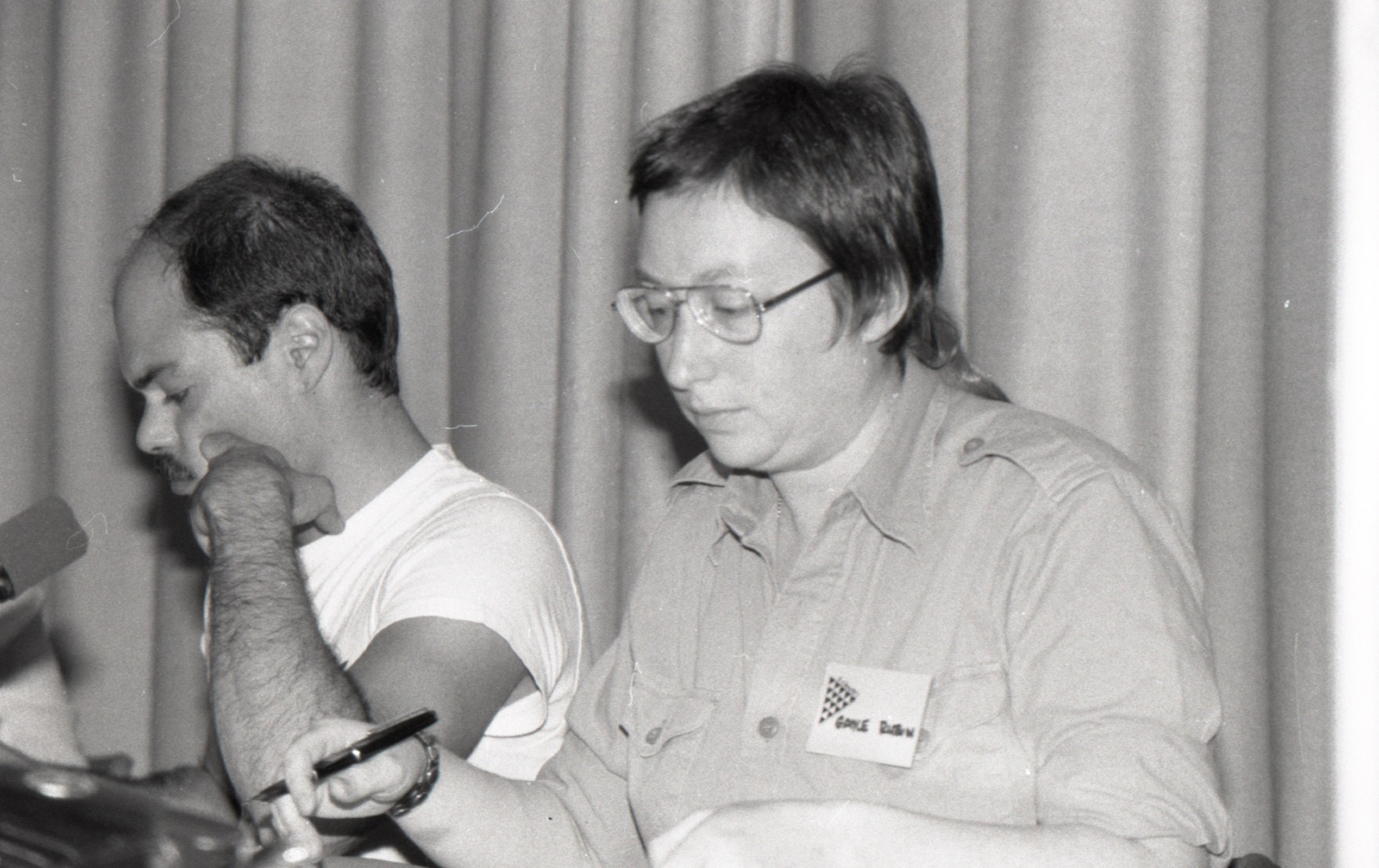
Gayle Rubin (born 1949) is an activist, theorist, and professor at the University of Michigan in Anthropology, Women’s Studies, and Comparative Literature. She earned her Ph.D. in Anthropology from the University of Michigan in 1994, and has taught at the institution since 2003. Rubin’s topics of study include anthropology, feminism, women’s studies, sexual subcultures, pornography and lesbian literature. She was awarded the F. O. Matthiessen Visiting Assistant Professorship in Gender and Sexuality from Harvard University, and a Distinguished Achievement Award in 2021 from The Association of Queer Anthropology (AQA). Rubin’s impact on gender and sexuality studies has been immense as she changed the vocabulary used with her coining of the terms “sex/gender system” and the “Charmed Circle.”
Rubin is widely recognized for her popular and influential essays “Thinking Sex” and “The Traffic in Women,” which have been taught in university level courses as examples of feminist theory. She is also known for her collection of essays titled Deviations, published in 2012, which focuses on subjects such as the development of sexual knowledge, lesbian history, and campaigns against pornography. For Deviations, she won the Ruth Benedict Prize for an edited work by the Association for Queer Anthropology in 2012. At the Wilde ‘82 Conference, Rubin was a speaker on the main panel titled “The Making of the Modern Homosexual.”
For more information on Gayle Rubin, click here.
Bruce Russell
Bruce Russell worked as a journalist until 1981, and published articles in The Body Politic between 1979-1981. His published articles include “Clash Around Body Politic Trial: Gay Support Grows” (1979), which he co-wrote with Gary Kinsman, and “Homosexuality in Upper Canada” (1980).
Gregory A. Sprague
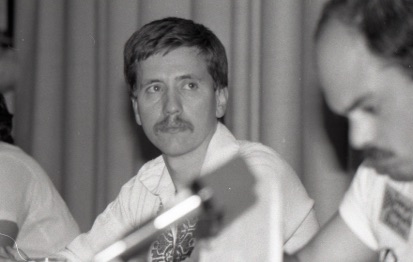
Gregory A. Sprague (1951-1987) was a historian who focused on lesbian and gay history in Chicago. Sprague founded the Chicago Gay History Project in 1978, and in 1979, he co-founded the American Historical Association’s Committee on Lesbian and Gay History. The Gay History Project, now called the Henry Gerber – Pearl M. Hart Library and Archives, put scholars in contact and organized volunteers to promote the collection and research of archival materials related to queer history. Sprague completed archival research consisting of compiling court and medical records, letters, and newspapers, and also completed oral interviews to use for his oral history project. His published articles on Chicago gay and lesbian history helped destigmatize the study of homosexuality as an academic field.
Sprague also taught courses focused on queer-topics the late 1970s and early 1980s with support from Lavender University, Gay Horizons, and the Gay Academic Union. He died in 1987 due to AIDS, and his archival papers can be viewed at the Chicago Historical Society. In 1994, after Sprague’s passing, The Gregory Sprague Prize was created to commemorate his accomplishments and the outstanding literature published by graduate students focused on gay, lesbian, or queer history. At the Wilde ‘82 conference, Sprague was a panel moderator.
For more information on Gregory A. Sprague, click here.
James D. Steakley
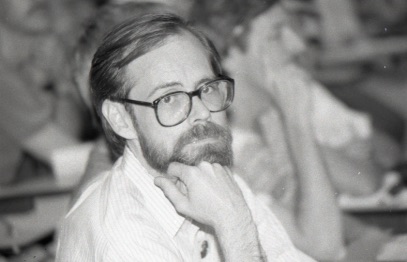
James D. Steakley, also known as Jim Steakley, is a Professor Emeritus at the University of Wisconsin-Madison whose research focused on German history, German opera studies, and LGBT history. Steakley completed his undergraduate studies at the University of Chicago, and did a one year graduate program at the University of Frankfurt between 1968 and 1969. He then attended Cornell University and joined the Gay Liberation Front.
Steakley has edited multiple anthology books, including Writings of German Composers, published in 1985, and German Opera Libretti, published in 1995. He also published multiple articles in The Body Politic, including ?The Gay Movement in Germany Today” in 1975, “Homosexuals and the Third Reich” in 1982, and “Leftist Sexual Politics and Homosexuality: An Historical Overview” in 1995. Many of Steakley’s works are published in German, and he has translated other academic articles from German to English. At the Wilde ‘82 Conference, Steakley presented the papers titled “The Personal as the Political: Political Cartoons on a Homosexual Scandal, 1906-1909” and “The Rise and Fall of the Early German Gay Movement (1860-1945).”
To see James D. Steakley’s archival papers, click here.
Beert Verstraete
Beert Verstraete, born in 1964, is a Professor Emeritus of classics at Acadia University. In 1978, Verstraete immigrated from Holland to Canada alongside his family, and the majority of his education was completed in Canada. He earned his Ph.D. in Classics from the University of Toronto, focusing his research on Roman literature and sexuality as it was in the Greco-Roman world. Verstrate has numerous publications, including books, essays, and scholarly articles. His books include The Age of Marriage in Ancient Rome (2003), co-written with Arnold A. Lelis and William A. Percy, Same-Sex Desire and Love in Greco-Roman Antiquity and in the Classical Tradition of the West (2005), co-written with Vernon Provencal, and Censoring Sex Research: The Debate over Male Intergenerational Relations (2013), co-written with Thomas K. Hubbard. He has also published a memoir titled Only Connect: A Memoir detailing how his life was changed by his immigration to Canada. His essays and other published works can be found on his website. At the Wilde ‘82 conference, Verstraete presented the paper titled “Homosexuality and Social Relationships in Ancient Rome.”
For more information on Beert Verstraete, click here.
Martha Vicinus
Martha Vicinus, born in 1939, is an emeritus professor who holds the title of the Eliza M. Mosher Distinguished Professor of English, History, and Women’s Studies at the University of Michigan. Vicinus received her Bachelor of Arts in 1961 from Northwestern University, then attended Johns Hopkins University in 1962 to earn her M.A. In 1968, she attended the University of Wisconsin for her Ph.D., and in the same year began working at Indiana University as an assistant professor. Vicinus joined the Women’s Studies Coordinating Committee, which was responsible for recommending the creation of a Women’s Studies Program at Indiana University. Vicinus also served as president of the American Federation of Teachers from 1975 to 1976. In 1977, she was promoted from associate professor to professor, and continued working for Indiana university until 1982, when she took a teaching position at the University of Michigan. From 2001-2002, Vicinus also held the position of interim chair of graduate studies in the University of Michigan’s Department of English.
Vicinus has published multiple books on gay and lesbian studies, as well as on the history, double standards, and sexless ideals applied to Victorian Women. Vicinus also held a fellowship from the John Simon Guggenheim Foundation, and was nominated for an Israel Fishman Non-Fiction Award. At the Wilde ‘82 Conference, Vicinus presented the paper “One Life to Stand Beside Me: Emotional Conflict of First Generation College-Educated Women.”
For more information on Martha Vicinus, click here.
Lex Watson
Lex Watson (1943-2014) was an Australian LGBTQ activist. Watson attended the University of Western Australia and earned his arts degree in history and philosophy in the 1960s. In 1970, Watson became part of the ACT Homosexual Law Reform Society and founded the AIDS Action Committee. In 1971, he was responsible for organizing Australia’s first gay rights demonstration. He was also a founder of Australia’s first openly homosexual group, the Campaign Against Moral Persecution (CAMP), and in 1972 became the group’s first co-president along with Sue Wills. In 1985, he was a founding president of NSW’s AIDS Council, and a founder of NSW Gay Rights Lobby, a group that helped decriminalize homosexuality in New South Wales.
Watson worked as a professor at the University of Sydney, teaching politics in the government department, and as a journalist for the Sydney Star newspaper. He was awarded the GLBTI Community Hero by ACON, and was president of the Pride History Group in Sydney until his passing. Watson passed away in 2014 after being appointed a Member of the Order of Australia in the Queen’s Birthday Honours. At the Wilde ’82 conference, he presented the paper titled “The History of Gays in Sydney, Australia.”
For more information on Lex Watson, click here.